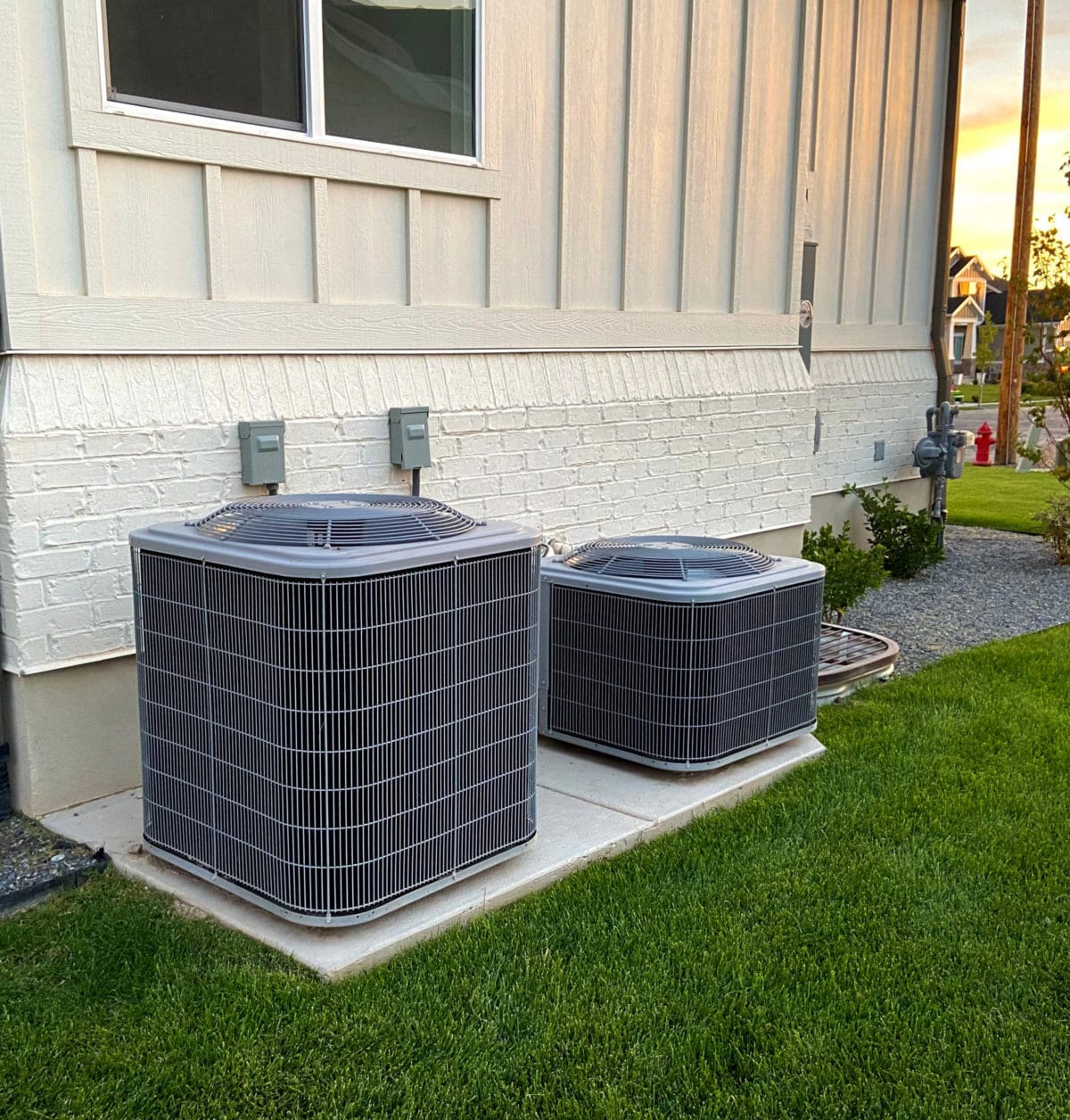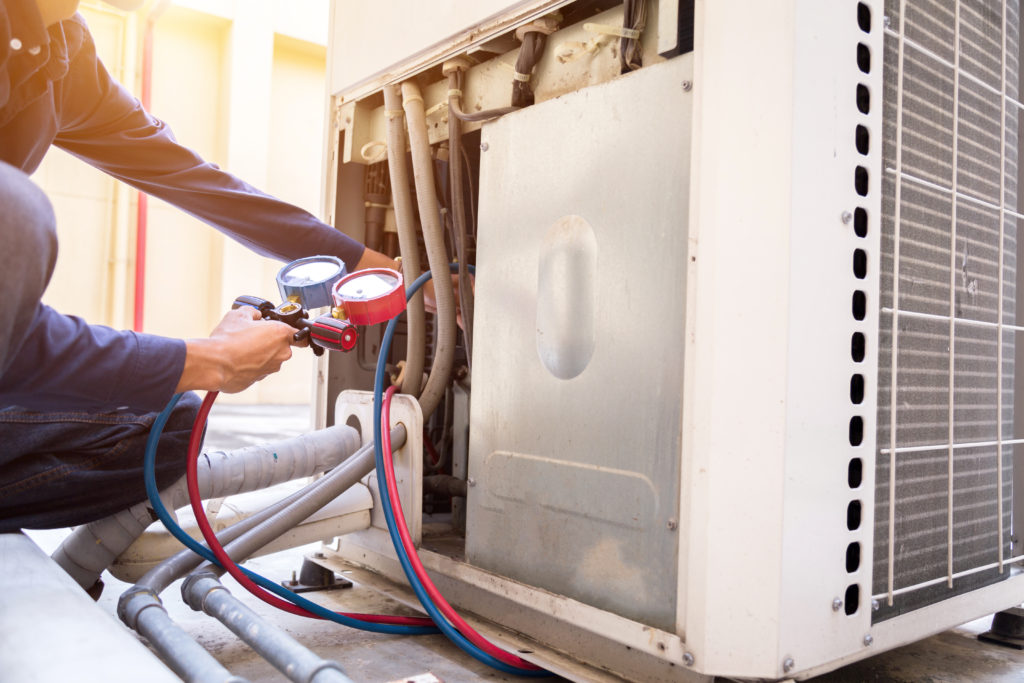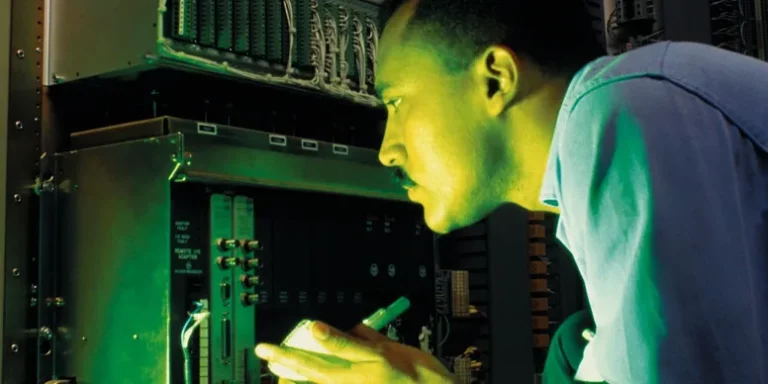How to Choose the Right HVAC System in Atlanta
Keith
on
January 5, 2024

Are you sweltering in the Atlanta heat and tired of seeing your energy bills soar? It’s time to consider upgrading your HVAC system. Choosing the right HVAC system for your Atlanta home can help you stay cool and save money. But with so many options available, how do you know which one is the right fit for you?
In this article, we will guide you through the process of choosing the perfect HVAC system for your Atlanta home. We will cover everything from understanding your cooling needs to exploring the different types of HVAC systems available in the market. Whether you are looking for a central air conditioning system, a ductless mini-split, or a heat pump, we have got you covered.
Keep reading to find out how to evaluate your home’s cooling requirements, the pros and cons of different HVAC systems, and how to choose the most energy-efficient option that will help you beat the heat without breaking the bank. Stay cool and save money with the right HVAC system in Atlanta.
The importance of choosing the right HVAC system
When it comes to staying comfortable in the Atlanta heat, choosing the right HVAC system is crucial. A well-functioning HVAC system not only provides cool air but also helps maintain indoor air quality and reduces humidity levels. It plays a significant role in creating a comfortable living environment for you and your family.
Understanding the different types of HVAC systems
Before diving into the process of choosing an HVAC system, it’s important to familiarize yourself with the different types available. The most common options include central air conditioning systems, ductless mini-splits, and heat pumps. Each type has its own set of advantages and considerations, so let’s take a closer look at each one.
Central air conditioning systems are the most traditional and widely used option in Atlanta homes. They consist of an outdoor unit that houses the compressor and condenser, and an indoor unit that contains the evaporator coil and air handler. Ductwork is used to distribute cool air throughout the home. Central air conditioning systems are effective in cooling large spaces and offer good overall temperature control.
Ductless mini-split systems, on the other hand, are ideal for homes without existing ductwork or for those looking for zoned cooling. They consist of an outdoor unit connected to one or more indoor units, allowing for individual temperature control in different areas of the home. Ductless mini-splits are energy-efficient and offer flexibility in terms of installation.
Heat pumps are another option worth considering, especially if you’re looking for both heating and cooling capabilities. Heat pumps work by extracting heat from the air or ground and transferring it indoors during colder months, and vice versa during warmer months. They are highly efficient and can provide significant energy savings in the long run.
Factors to consider when choosing an HVAC system
Choosing the right HVAC system involves considering several factors that are unique to your home and requirements. Here are some key factors to keep in mind during the decision-making process.
1. Size of your home: The size of your home plays a crucial role in determining the capacity of the HVAC system you need. A system that is too small may struggle to cool your home efficiently, while an oversized system can lead to frequent cycling and unnecessary energy consumption. It’s essential to have your home properly sized by a professional to ensure the HVAC system is a perfect fit.
2. Energy efficiency: Energy efficiency is an important consideration, not only for the environment but also for your wallet. Look for HVAC systems with high Seasonal Energy Efficiency Ratios (SEER) and Heating Seasonal Performance Factors (HSPF). These ratings indicate the system’s efficiency in cooling and heating respectively. Investing in an energy-efficient system can result in significant long-term savings.
3. Budget: Set a budget for your HVAC system upgrade and consider the long-term savings it can provide. While it may be tempting to opt for the cheapest option, keep in mind that higher-quality systems often come with better warranties and higher efficiency ratings. It’s important to strike a balance between upfront costs and long-term benefits.
4. Noise levels: HVAC systems can produce varying levels of noise, especially when operating at full capacity. Consider the noise levels of different systems and choose one that aligns with your comfort preferences. If noise is a concern, look for systems with lower decibel ratings.
5. Indoor air quality: Indoor air quality is crucial for your health and well-being. Some HVAC systems come with advanced filtration options that can remove allergens, pollutants, and odors from the air. If indoor air quality is a concern, consider investing in a system with additional filtration features.
Energy efficiency and cost savings with HVAC systems

Choosing an energy-efficient HVAC system not only helps reduce your environmental impact but also saves you money in the long run. HVAC systems with high SEER and HSPF ratings can significantly lower your energy bills compared to older, less efficient systems.
To maximize energy efficiency, consider the following tips:
1. Regular maintenance: Regular HVAC system maintenance is essential to keep your HVAC system running at peak efficiency. Schedule annual tune-ups and inspections to ensure proper operation and identify any potential issues early on.
2. Programmable thermostats: Install a programmable thermostat to optimize temperature settings based on your schedule. This allows you to reduce energy consumption when you’re away from home or asleep.
3. Proper insulation: Ensure your home is properly insulated to minimize heat transfer. Insulation helps keep cool air inside during hot summer months and prevents heat loss in colder months.
4. Sealing air leaks: Identify and seal any air leaks around windows, doors, and ductwork. Air leaks can lead to energy loss and reduced efficiency.
5. Smart HVAC controls: Consider investing in smart HVAC controls that allow you to monitor and control your system remotely. These controls can help you make adjustments to your settings for optimal energy efficiency.
By implementing these energy-saving practices and choosing an efficient HVAC system, you can significantly reduce your energy bills and contribute to a greener future.
Sizing your HVAC system properly
One of the most critical aspects of choosing the right HVAC system is sizing it properly for your home. An oversized or undersized unit can lead to a range of issues, including reduced efficiency, increased energy consumption, and uneven cooling.
To ensure the proper sizing of your HVAC system, it’s essential to consult with a professional HVAC contractor. They will perform a load calculation, taking into account factors such as the size of your home, insulation levels, and local climate. This calculation helps determine the appropriate capacity for your HVAC system, ensuring optimal performance and efficiency.
The role of maintenance in HVAC system performance
Regular maintenance is key to keeping your HVAC system in top shape. Neglecting maintenance can lead to reduced efficiency, increased energy consumption, and costly repairs. Here are some maintenance tasks you should perform regularly:
1. Air filter replacement: Replace your air filters every 1-3 months, depending on usage. Dirty filters restrict airflow and can cause your HVAC system to work harder than necessary.
2. Coil cleaning: Clean the outdoor condenser coil and indoor evaporator coil annually to remove dirt and debris. Dirty coils can impact airflow and reduce cooling efficiency.
3. Duct cleaning: Have your ductwork professionally cleaned every few years to remove dust, mold, and other contaminants. Clean ducts help maintain good indoor air quality and prevent airflow restrictions.
4. Refrigerant check: Regularly check the refrigerant levels in your HVAC system to ensure they are within the manufacturer’s recommended range. Low refrigerant levels can lead to poor cooling performance.
5. Fan and motor maintenance: Lubricate fan motors and check fan blades for any signs of wear or damage. Properly functioning fans are essential for efficient airflow.
By following these maintenance tasks and scheduling regular professional tune-ups, you can extend the lifespan of your HVAC system and maintain optimal performance.
Choosing the right HVAC contractor in Atlanta

Selecting the right HVAC contractor is just as important as choosing the right HVAC system. A reputable and experienced contractor will ensure proper installation, provide ongoing maintenance, and offer reliable customer service. Here are some tips for finding the right HVAC contractor in Atlanta:
1. Research and referrals: Research local HVAC contractors and ask for referrals from friends, family, and neighbors. Look for contractors with positive reviews and a good reputation in the community.
2. Licensing and certifications: Verify that the contractor holds the necessary licenses and certifications required by the state of Georgia. This ensures they have the knowledge and expertise to handle your HVAC system.
3. Experience and expertise: Choose a contractor with extensive experience in installing and maintaining HVAC systems. They should be familiar with the specific needs and challenges of Atlanta’s climate.
4. Free estimates and consultations: Obtain multiple estimates from different contractors and schedule consultations to discuss your specific requirements. This will help you compare pricing, services offered, and warranties provided.
5. Warranty and maintenance agreements: Inquire about the warranties offered by the contractor and the availability of maintenance agreements. A reliable contractor will stand behind their work and offer ongoing support.
Taking the time to research and choose the right HVAC contractor will ensure a smooth installation process and long-term peace of mind.
Common HVAC system problems and how to avoid them
While proper maintenance can prevent many HVAC system problems, it’s important to be aware of common issues and how to avoid them. Here are some common problems and their solutions:
1. Poor airflow: Poor airflow can be caused by clogged filters, dirty coils, or ductwork obstructions. Regularly clean or replace filters, clean coils, and ensure ducts are free from obstructions.
2. Refrigerant leaks: Low refrigerant levels can indicate a refrigerant leak. If you suspect a leak, contact a professional HVAC technician to locate and repair the leak before recharging the system.
3. Thermostat issues: Faulty thermostats can result in temperature inconsistencies or system malfunctions. Check the thermostat settings, replace batteries if needed, and consider upgrading to a smart thermostat for better control.
4. Strange noises: Unusual noises such as rattling, grinding, or squealing can indicate underlying issues. Contact a professional to diagnose and address the problem promptly.
5. Frozen evaporator coils: Frozen evaporator coils can be caused by restricted airflow or refrigerant issues. Check for dirty filters, clean coils, and ensure proper refrigerant levels.
By staying vigilant and addressing any issues promptly, you can prevent major HVAC system problems and ensure optimal performance throughout the year.
Upgrading your HVAC system for improved efficiency
If you have an older HVAC system or are looking to improve energy efficiency, upgrading to a newer system may be the right solution. Here are some signs that it’s time to consider an upgrade:
1. Age of the system: HVAC systems typically have a lifespan of 10-15 years. If your system is nearing or exceeding this age, it may be time for an upgrade.
2. Frequent repairs: If you find yourself constantly dealing with repairs and breakdowns, it may be more cost-effective to invest in a new system.
3. Inefficient performance: If your energy bills are consistently high and your home is not comfortable, it may be a sign that your HVAC system is no longer operating efficiently.
4. Advancements in technology: Newer HVAC systems come with advanced technologies and features that can significantly improve energy efficiency and comfort. Upgrading to a newer model can provide long-term savings and improved performance.
When considering an upgrade, consult with a professional HVAC contractor who can assess your home’s needs and recommend the best options for your specific requirements.
Making the right choice for your Atlanta home
Choosing the right HVAC system for your Atlanta home is a decision that requires careful consideration. By understanding your cooling needs, exploring the different types of HVAC systems available, and considering factors such as energy efficiency, sizing, and maintenance, you can make an informed choice that will keep you cool and save you money.
Remember to choose a reputable HVAC contractor who can guide you through the process, provide professional installation, and offer ongoing maintenance and support. With the right HVAC system in place, you can beat the heat and enjoy a comfortable, energy-efficient home in Atlanta. Stay cool and save money with the perfect HVAC system for your needs.
- Category: HVAC Atlanta
